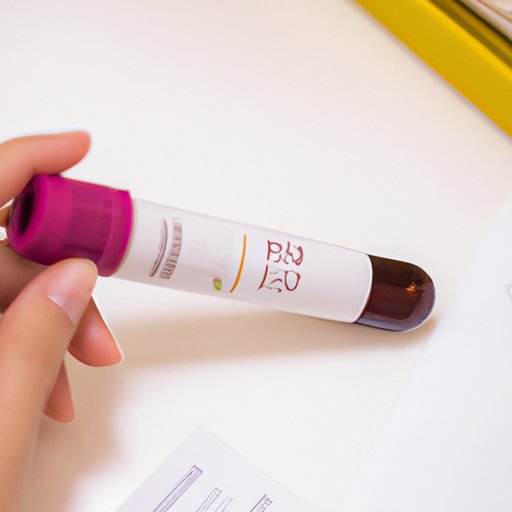Introduction
Polycystic ovary syndrome (PCOS) is a hormonal disorder that affects women of reproductive age. It can cause irregular menstrual cycles, infertility, acne, and excessive hair growth. PCOS is one of the most common endocrine disorders in women, and it is estimated that up to 10% of women of reproductive age in the United States have PCOS. While there is no cure for PCOS, early diagnosis and treatment can help manage its symptoms and reduce the risk of long-term health problems.

Schedule an Appointment with Your Gynecologist
If you think you may have PCOS, the first step is to schedule an appointment with your gynecologist. Your doctor will ask you questions about your medical history and perform a physical exam. They may also order lab tests to check your hormone levels and look for other possible causes of your symptoms.

Learn About the Symptoms of PCOS
The most common symptom of PCOS is irregular or absent menstrual periods. Other symptoms include excessive hair growth on the face, chest, back, and abdomen; weight gain; thinning hair on the scalp; oily skin; and acne. If you experience any of these symptoms, it is important to talk to your doctor about them.

Get Blood Tests to Check Hormone Levels
Your doctor may order blood tests to check your hormone levels. These tests can help determine if you have an imbalance of sex hormones, such as elevated levels of testosterone or luteinizing hormone. They can also reveal if you have high levels of insulin, which can indicate insulin resistance, a condition associated with PCOS.
Have an Ultrasound to Look for Ovarian Cysts
An ultrasound is a non-invasive imaging test that allows your doctor to see inside your body. During the ultrasound, your doctor will look for small cysts on your ovaries, which are a sign of PCOS. The ultrasound can also reveal if your ovaries are enlarged, which is another indication of PCOS.
Discuss Your Medical History and Family Health History
Your doctor will also want to discuss your medical history and family health history. This is important because certain conditions, such as diabetes, thyroid disease, and obesity, can increase your risk of developing PCOS. They may also ask questions about your lifestyle, such as how much exercise you get and what types of foods you eat.
Take a Glucose Tolerance Test to Check Insulin Resistance
Your doctor may recommend a glucose tolerance test to check for insulin resistance. This test measures how well your body processes sugar. If your body is not able to process sugar properly, it could be a sign of insulin resistance, which is linked to PCOS.

Consider Genetic Testing to Check for Specific Mutations
Genetic testing is a newer method of testing for PCOS. It involves looking for specific genetic mutations that are linked to the development of PCOS. This type of testing is still experimental, but it can provide valuable information about your risk of developing PCOS.
Conclusion
Diagnosing PCOS requires a thorough evaluation, including a physical exam, hormone level tests, an ultrasound, and possibly genetic testing. Talking to your doctor about your medical history and family health history is also important. Once the diagnosis is confirmed, your doctor can work with you to create a treatment plan that meets your individual needs.
(Note: Is this article not meeting your expectations? Do you have knowledge or insights to share? Unlock new opportunities and expand your reach by joining our authors team. Click Registration to join us and share your expertise with our readers.)
